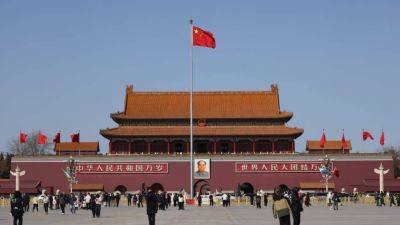Southeast Asia’s digital future should be more than replicas of the past
This is clear in both political pronouncements and the national and Association of Southeast Asian Nations (Asean) policy documents issued in recent years. It is also evident in rising capital investment. Despite global headwinds, in 2023, companies in Southeast Asia were projected to increase spending on AI solutions from US$174 million to US$646 million in 2026.
But this public-private penchant for “technocracy” – a tech-centred approach to development and governance – may be focused too narrowly on what can be measured without fully accounting for costs unseen.
What is often underappreciated is that the arc of technology travels back to history. Although the build of AI may be rational (think, mathematical equations), it is the fuzzy logic of society that really feeds and powers this technology. Nowhere is this clearer than in the role of data as the basis for AI.
02:19
Is AI better at maths than mathematicians?
Data is a social construct, it is never neutral because it depends on who produces, relays, even reconstructs it.
In colonial Southeast Asia, administrators collected data through census surveys and cartography exercises for policymakers in distant metropoles who were engaged in empire-building. Out of that data grew narratives that often reduced the colonial subjects to stereotypes, paving the way for conquest and, later, divide-and-rule policies.
The legacy of this framing shadows many modern states in Southeast Asia decades after independence. The categories that were used to label us under colonial rule form the basis of many demographic markers in official documents today.
In Malaysia, for example, children of mixed marriages are usually only officially recognised by one ethnicity. This not only erases a







